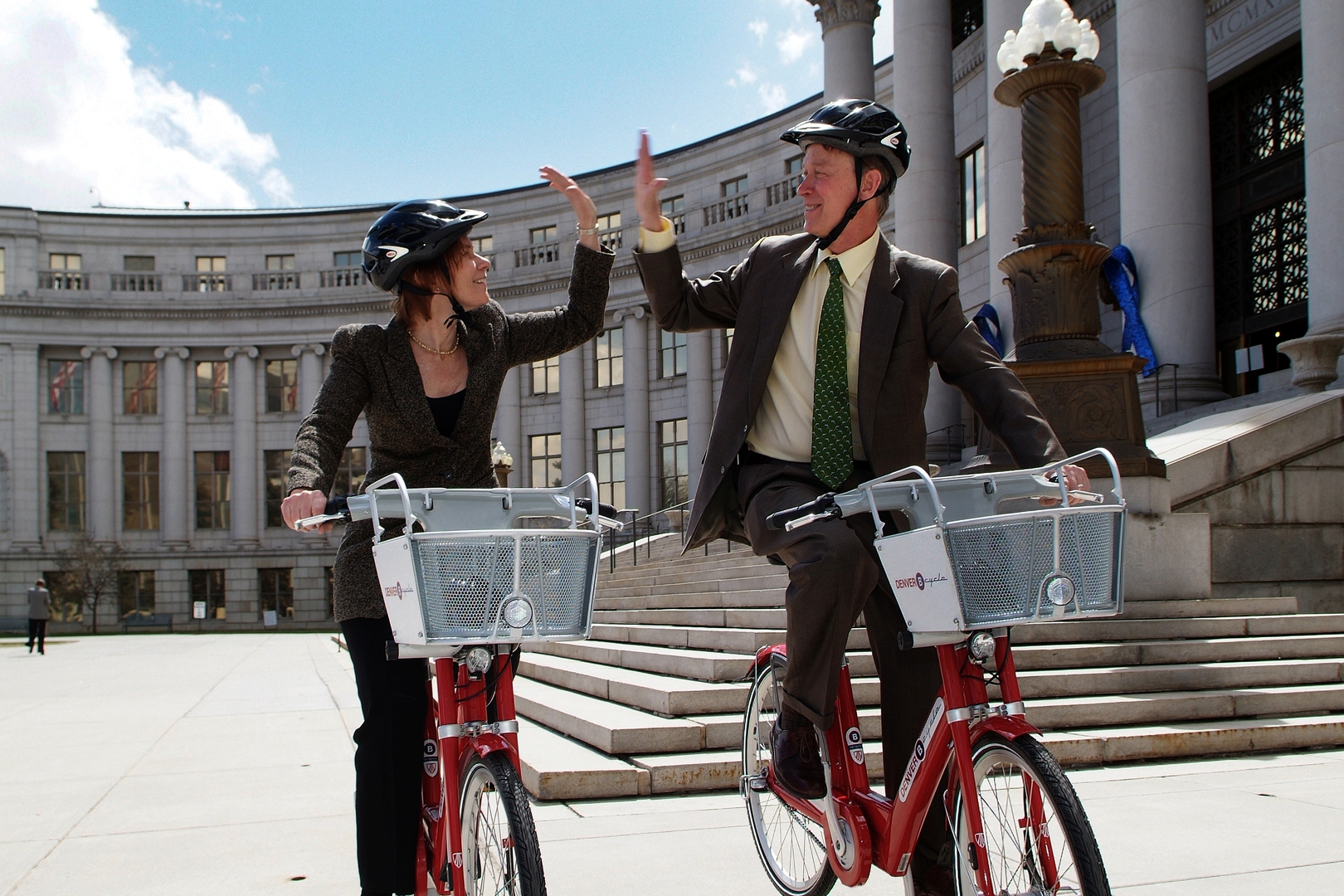Seattle may have won the Super Bowl, but when it comes to bike share, Denver remains well ahead.
As we reported earlier this week, Mayor Ed Murray and the nonprofit Puget Sound Bike Share will soon announce that the final piece of private funding has been identified to allow for the launch Seattle’s bike share program in 2014. Assuming the equipment is procured on time – a somewhat dicey situation, given the recent bankruptcy of the previously chosen vendor – Seattle will soon see “phase one” of the city’s bike share program take shape, in the form of 50 stations and 500 bikes available for short-term rental throughout the city.
It’s a road Denver pedaled down after the 2008 Democratic National Convention there. Today, Denver B-Cycle – the Mile High City’s bike share program, which is largely sponsored by Kaiser Permanente – boasts roughly 80 stations and 4000 annual members. Just like Seattle’s will, Denver B-Cycle relies on a mix of private dollars and federal and local grants.
According to Denver B-Cycle Executive Director Nick Bohnenkamp, there are lessons to be learned, and many of them speak to the importance of strong political leadership like Murray is so far providing. So that’s a good sign.
Having former Mayor John Hickenlooper act as “catalyst, essentially at the top” for the program, according to Bohnenkamp, helped pave the way for B-Cycle’s launch. “I think a lot of that political will helped us execute,” he says, noting that Hickenlooper not only helped raise interest and dollars, but pushed for regulations and permitting that made building the transportation system possible.
Another challenge when starting a bike share program – and one Puget Sound Bike Share is no doubt keenly aware of – is the difficulty in selling small private sponsors on a system that doesn’t yet exist. According to Bohnenkamp, it takes a good pitch, and more importantly a community that understands a value built more on city improvement than branding opportunities.
“This really is, in Denver, a system that was supported not only from the top down but the bottom up. … It can be challenging at the beginning, before you have anything in the ground, to generate the kind of dollars from the business community that you need to make ends meet,” says Bohnenkamp. “We ended up having very strong community support. Looking back, four years later, a lot of those people [who initially sponsored B-Cycle] are very happy they did.
“A lot of our business supporters look at it as improving Denver,” he continues. “It’s about creating a stronger, more vibrant, healthier community.”
Assuming Seattle’s bike share does launch in 2014 – and, most importantly, it works – that should be an increasingly easy pitch to make.








